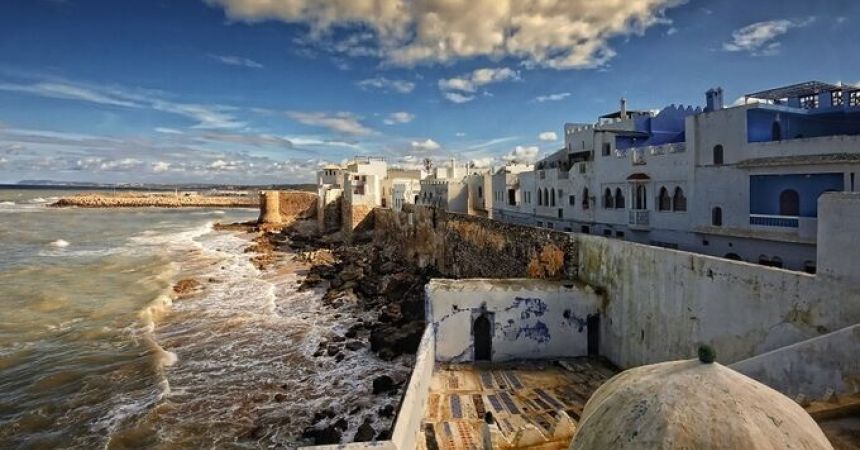
Best Time to Visit Morocco for Culture and Adventure
Morocco is a country of breathtaking diversity, offering everything from sun-drenched beaches and towering mountains to vibrant cities and vast deserts. Deciding when to visit this enchanting destination can significantly impact your experience. The best time to visit Morocco depends on various factors, including the weather, festivals, and your specific interests. This comprehensive guide will help you determine the ideal time to explore Morocco, ensuring you get the most out of your trip.
Understanding Morocco’s Climate
Morocco's climate varies significantly across its different regions, making it a year-round destination with diverse weather patterns. Here’s a breakdown of the main climatic zones:
Coastal Areas
The coastal regions, including cities like Casablanca, Rabat, and Essaouira, enjoy a Mediterranean climate with mild, wet winters and hot, dry summers.
Inland Cities
Inland cities such as Marrakech, Fes, and Meknes experience a continental climate with hot summers and cool winters. Temperatures can drop significantly at night.
Desert Regions
The Sahara Desert has an extreme climate with scorching days and chilly nights. Summer temperatures can be unbearable, while winters are more comfortable.
Mountainous Areas
The Atlas and Rif Mountains have a varied climate. The High Atlas Mountains experience cold, snowy winters and mild summers, while the Middle and Anti-Atlas Mountains have milder winters and warmer summers.
Best Time to Visit Morocco by Season
Spring (March to May)
Spring is one of the best times to visit Morocco. The weather is pleasant and mild, making it ideal for exploring cities, hiking in the mountains, and enjoying the coast.
Pros:
- Comfortable temperatures for outdoor activities.
- Blooming landscapes, especially in the Atlas Mountains.
- Lower tourist crowds compared to summer.
Cons:
- Occasional rain, particularly in the northern regions.
- Can be busy during the Easter holidays.
Summer (June to August)
Summer in Morocco can be extremely hot, especially in inland and desert areas. However, coastal cities like Casablanca and Essaouira offer cooler and more comfortable climates.
Pros:
- Coastal regions are ideal for beach activities.
- Long daylight hours for sightseeing.
- Numerous festivals and events.
Cons:
- Intense heat in inland and desert areas.
- Higher tourist crowds and prices.
Autumn (September to November)
Autumn offers similar conditions to spring, making it another excellent time to visit. The weather is mild, and there are fewer tourists compared to the summer months.
Pros:
- Pleasant temperatures for travel and outdoor activities.
- Harvest season brings vibrant markets and fresh produce.
- Lower tourist crowds than in summer.
Cons:
- Some occasional rain, particularly in the north.
- Cooler evenings and nights.
Winter (December to February)
Winter is the best time for desert excursions, with cooler temperatures making it more bearable. Coastal areas remain mild, but mountainous regions can be quite cold, with snow in the High Atlas Mountains.
Pros:
- Ideal for exploring the Sahara Desert.
- Lower tourist crowds and prices.
- Snow sports in the Atlas Mountains.
Cons:
- Cold temperatures in the mountains and inland cities.
- Shorter daylight hours.
Best Time to Visit Specific Destinations
Marrakech
Marrakech, with its vibrant souks, historic palaces, and lively atmosphere, is a year-round destination. However, the best times to visit are during spring and autumn when the weather is mild and comfortable for exploring.
Best Months: March to May, September to November
Fes
Fes, known for its well-preserved medieval medina, is best visited in spring and autumn. These seasons offer pleasant weather for navigating the narrow alleys and exploring historical sites.
Best Months: March to May, September to November
Chefchaouen
The Blue City of Chefchaouen, nestled in the Rif Mountains, is best visited in spring and autumn when temperatures are mild and the town's charm is at its peak.
Best Months: March to May, September to November
Sahara Desert
The Sahara Desert is best explored in the cooler months, from October to April. Summer temperatures can be unbearably high, making it difficult to enjoy desert activities.
Best Months: October to April
Essaouira
Essaouira, with its laid-back vibe and beautiful beaches, is a great summer destination. The coastal breeze keeps temperatures comfortable, even during the hottest months.
Best Months: June to August
Atlas Mountains
The Atlas Mountains offer different experiences throughout the year. Spring and autumn are ideal for trekking and exploring Berber villages, while winter is perfect for snow sports.

Best Months: March to May, September to November (trekking), December to February (snow sports)
Casablanca
Casablanca, Morocco’s largest city, is best visited in spring and autumn when the weather is mild. The coastal city enjoys a Mediterranean climate, making it pleasant year-round, but avoid the hottest summer months if you plan extensive sightseeing.
Best Months: March to May, September to November
Rabat
Rabat, the capital city, shares a similar climate with Casablanca. Spring and autumn are the best times to explore its historical sites and coastal attractions.
Best Months: March to May, September to November
Best Time for Festivals and Events
Morocco is home to numerous festivals and events that offer unique cultural experiences. Here are some of the most notable ones:
Ramadan
Ramadan is a significant religious event in Morocco, observed with fasting from sunrise to sunset. While some businesses may have reduced hours, the evenings come alive with feasting and celebrations.
When: Dates vary each year based on the Islamic lunar calendar
Eid al-Fitr
Eid al-Fitr marks the end of Ramadan and is celebrated with feasts, family gatherings, and special prayers. It's a joyful time to experience Moroccan hospitality and traditions.
When: Dates vary each year based on the Islamic lunar calendar
Eid al-Adha
Eid al-Adha, also known as the Festival of Sacrifice, commemorates the willingness of Ibrahim (Abraham) to sacrifice his son as an act of obedience to God. It involves the sacrifice of animals and sharing the meat with family, friends, and the less fortunate.
When: Dates vary each year based on the Islamic lunar calendar
Marrakech International Film Festival
Held annually in December, this festival attracts filmmakers and celebrities from around the world. It’s a great opportunity to enjoy international cinema in a beautiful setting.
When: December
Fes Festival of World Sacred Music
This unique festival in June features performances by artists from various cultural and religious backgrounds, promoting peace and understanding through music.
When: June
Essaouira Gnaoua and World Music Festival
Travel around Essaouira hosts this vibrant festival in June, celebrating Gnaoua music, a rich fusion of African, Berber, and Arabic sounds. The festival features performances by international and local artists.
When: June
Rose Festival in El Kelaa M’Gouna
This festival, held in May, celebrates the rose harvest in the Dades Valley. It includes parades, music, dance, and the crowning of a Rose Queen.
When: May
Erfoud Date Festival
The Erfoud Date Festival, held in October, celebrates the date harvest in the Sahara Desert region. The festival features traditional music, dance, and camel races.
When: October
Best Time for Outdoor Activities
Hiking and Trekking
The best time for hiking and trekking in Morocco, especially in the Atlas Mountains, is during spring (March to May) and autumn (September to November). The weather is mild, and the landscapes are lush and green.
Desert Adventures
The best time for desert adventures, such as camel treks and 4x4 excursions in the Sahara Desert, is from October to April. The temperatures are cooler, making it more comfortable to explore the desert.
Beach Activities
The best time for beach activities along Morocco’s Atlantic coast, including surfing, windsurfing, and kitesurfing, is during the summer months (June to August). The coastal breeze keeps temperatures pleasant.
Snow Sports
For snow sports enthusiasts, the best time to visit the Atlas Mountains is during winter (December to February). Oukaïmeden, Morocco’s main ski resort, offers skiing and snowboarding opportunities.
Practical Tips for Visiting Morocco
Currency and Money
The Moroccan Dirham (MAD) is the local currency. It's advisable to carry some cash for small purchases, as not all vendors accept credit cards. ATMs are widely available in cities.
Language
Arabic and Berber are the official languages of Morocco, but French is widely spoken, especially in tourist areas. Learning a few basic phrases in Arabic or French can enhance your experience and make interactions with locals more enjoyable.
Dress Code
Morocco is a conservative country, and dressing modestly is appreciated, especially in rural areas and religious sites. Women should cover their shoulders and knees, and men should avoid wearing shorts in more conservative settings.
Safety
Morocco is generally safe for tourists, but it's essential to stay vigilant, especially in crowded areas and markets. Keep an eye on your belongings and be cautious when accepting offers from strangers.
Health
Drink bottled or filtered water, as tap water is not recommended for drinking. Enjoy street food from busy stalls to ensure freshness, and carry hand sanitizer for hygiene.
Bargaining
Bargaining is expected in Moroccan markets. Start by offering half the asking price and negotiate from there. Keep the process friendly and respectful.
Transportation
Morocco has a well-developed transportation network, including trains, buses, and taxis. Trains are a comfortable and efficient way to travel between major cities, while buses and taxis are more flexible options for reaching smaller towns and rural areas.



